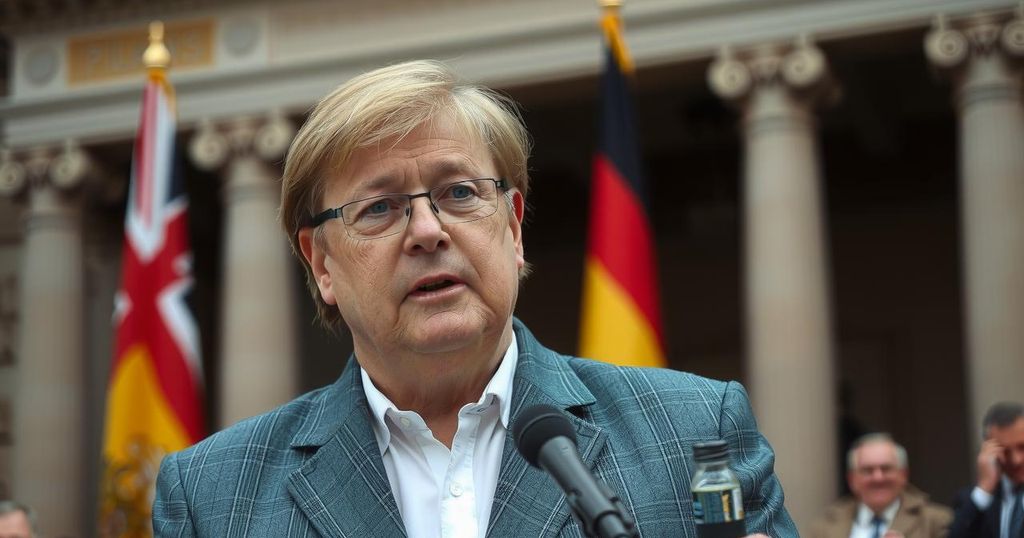German President Calls Early Election Following Government Collapse

German President Frank-Walter Steinmeier has dissolved parliament and announced a general election for February 23, following the collapse of Olaf Scholz’s government. Recent security issues, highlighted by a tragic Christmas market attack, have intensified national debates on immigration and defense. With the CDU/CSU leading polls, the upcoming elections are set against a backdrop of economic and societal challenges that require thoughtful discourse and civility.
On Friday, German President Frank-Walter Steinmeier formally dissolved the parliament, setting the stage for an early general election scheduled for February 23. This decision comes in the wake of the collapse of Chancellor Olaf Scholz’s coalition government, which was hindered by internal conflicts regarding the economic revival of Germany, the largest economy in Europe. The recent tragic incident at a Christmas market in Magdeburg, where a vehicle attack resulted in five fatalities and over 200 injuries, has intensified the national discourse on security and immigration issues.
Steinmeier emphasized the importance of “political stability,” urging that the upcoming campaign be characterized by respect and civility. He commented on the need to mitigate “foreign influence” in the electoral process, specifically referencing the impact of social media platforms. Chancellor Scholz has called for unity in the face of hate, underscoring a collective stance against divisive rhetoric. Meanwhile, the conservative CDU/CSU leads polling figures at approximately 32%, advocating a stricter approach to immigration. The far-right Alternative for Germany (AfD) follows closely, leveraging the current security climate to bolster its message of restriction.
Steinmeier highlighted the pressing challenges awaiting the new government, including economic instability, international conflicts, and environmental concerns. He reminded political parties and voters that issues like defense spending and sustainable energy require urgent and thoughtful deliberation. Plans from the SPD include mobilizing funds to revitalize the economy, while CDU proposals suggest studying the viability of reopening former nuclear power plants. In conclusion, the president’s address served as a reminder of the democratic values necessary during the electoral campaign and the imperative for collaborative governance in addressing Germany’s complex challenges.
The political landscape in Germany has been volatile, particularly following the recent disintegration of Chancellor Olaf Scholz’s coalition government. This coalition faced significant challenges in reviving a struggling economy and responding to societal calls for enhanced security amid the backdrop of terrorism, particularly following the car-ramming attack at a Magdeburg Christmas market. The urgency of these issues has necessitated a swift electoral response from the President, aiming to restore stability and ensure that political discourse remains respectful amidst rising tensions.
In summary, President Steinmeier’s dissolution of parliament marks a critical moment for Germany as it prepares for elections amid a landscape characterized by economic, security, and environmental concerns. With the CDU/CSU leading in the polls and the rise of far-right sentiments, the forthcoming campaign will significantly influence the nation’s approach to key challenges. Steinmeier’s insistence on civility and democratic integrity serves as a beacon for the political discourse that must unfold.
Original Source: www.barrons.com








